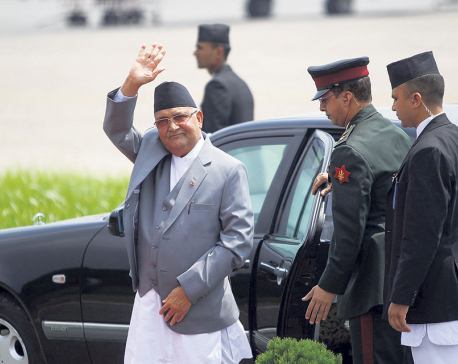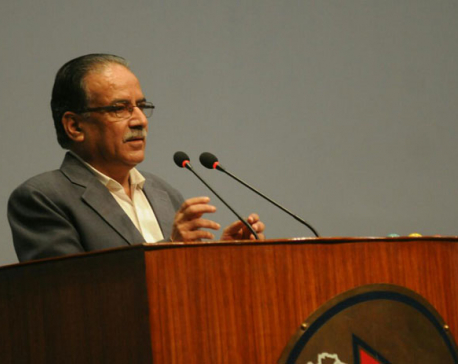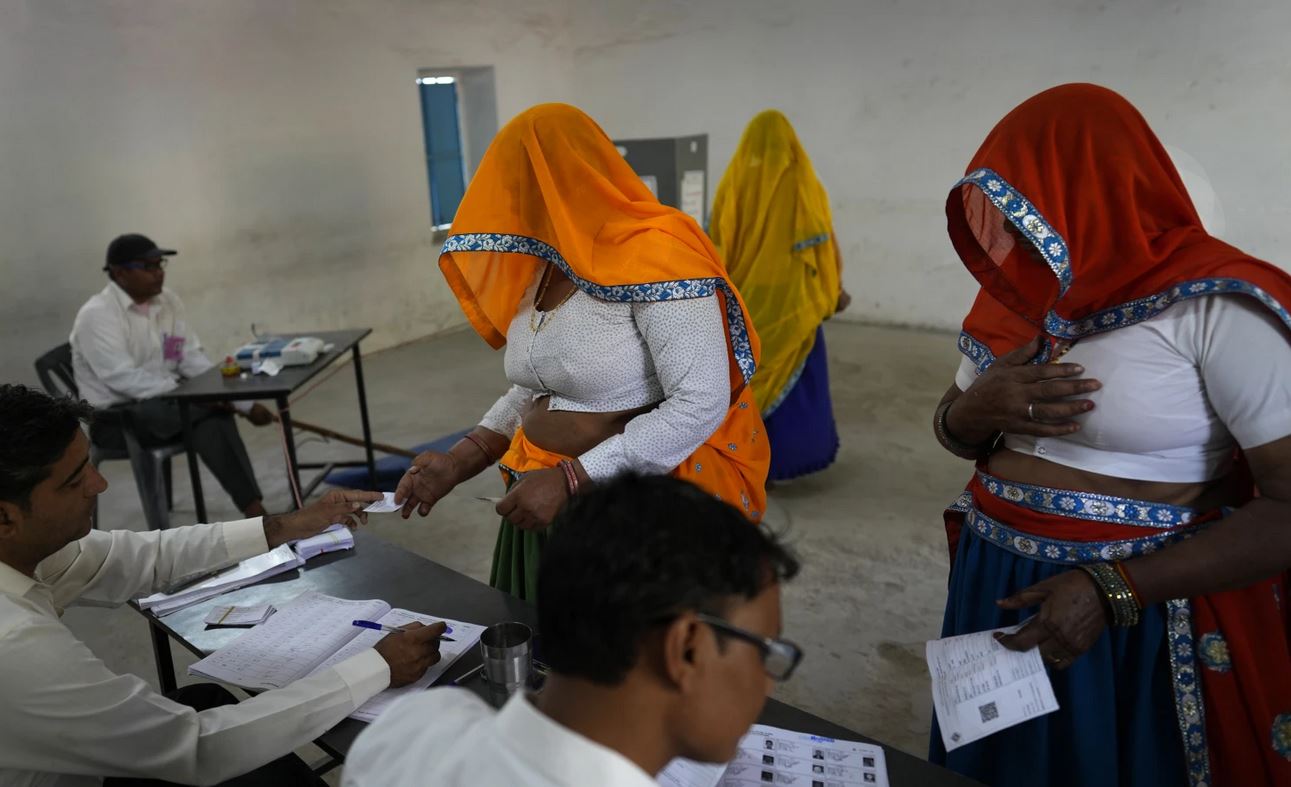
OR
INDO-NEPAL RELATIONS: MORE NOISE MINUS SUBSTANCE [COMMENTARY]
Published On: June 9, 2016 02:49 PM NPT By: Arun Kumar Shrivastav
![INDO-NEPAL RELATIONS: MORE NOISE MINUS SUBSTANCE [COMMENTARY]](https://www.myrepublica.bidheegroup.com/uploads/media/OPINION.jpg)
Lost opportunities due to current bad blood between India and Nepal will have a long-term impact.
India-Nepal relations are at an all-time low and there can be nothing more unfortunate at this hour of need when Nepal has just suffered that devastating earthquake amid unending political instability.
Tears came rolling down when people in India watched the famed Darbar Square temples lying in ruins and ordinary Nepalis’ lives shattered on such a devastating scale.
PM Narendra Modi’s prompt help in rescue and relief only made his alma mater RSS proud. He went ahead and committed a whopping $1 bn over five years for the work. Add to this Nepali PM Sushil Koirala’s warm hospitability at the SAARC summit and his backroom management to break the ice between Modi and Pakistan PM Nawaz Sharif.
Then, what went wrong? How suddenly the issue of Nepali Constitution became an issue between India and Nepal, prompting India to go for the blockade? Indian government argued that it was not an official blockade but a result of the deteriorated law and order situation in Nepal in the aftermath of the promulgation of the Nepali Constitution.
The blockade unleashed problems that never existed even in imagination. From lack of oxygen in hospitals to embassies going without standby power and people thronging to firewood depots, ordinary people had a taste of life without the supplies from India.
This situation should logically make the policymakers in Nepal think of alternatives available and when everybody is doing business with China including India, why should Nepal shy away from its powerhouse neighbour?
And why should it be a concern for India either, given the size of business between the two countries and India’s geographical advantage. For the Nepali media, Nepali PM KP Sharma Oli’s China visit was the kind of sensation they needed in the post-quake, depressive environment with one of the poorest economic growths in the region in Nepal.
Usual arguments and passionate rants apart, more intense Nepal-China cooperation is being seen in India as a natural manifestation of growing dynamism in relations between the nations in the region including China. China’s economic miracle, manufacturing sector success and the country’s financial might are hard to ignore. Nepal reaching out to China in times of its need should not irk Indian policymakers.
In recent months, a scheduled state visit of Nepali President Bidya Devi Bhandari was cancelled and Nepali ambassador to India was called back, both developments strongly connected with emerging political situation in Nepal.
Are these developments setbacks to the India-Nepal relations? Is there a let-up in Modi’s commitment to Nepal or is India indifferent and passive to what is happening in Nepal?
If the answer to all these questions is a Yes, a feeling that finds a strong echo in the Nepali intelligentsia is, it’s time to complain.
It’s time to complain about the way the two nations conduct their diplomacy that lets people live and die for want of necessary supplies because they could not act fast and decisively or they could not foresee the problem and script a roadmap in time to preempt the crisis. It’s so easy for the Nepali intelligentsia to leave the blame with India, or Indian PM or India’s lack of drive to take the relations to the next level.
But the works that we want done in the context of bilateral relations between the two countries has so little to do with Indian government and so much to do with Indian people and Indian private sector.
Nepal’s economic development which will directly benefit the common people hinges on foreign investment, two-thirds of which at present comes from India. It’s here at this front – investment from India – that a lot needs to be done, new initiatives taken. Foreign educated next gen leaders in Nepal’s top business families are unwilling to seize the opportunity.
The time lost in securing business deals with Indian private sector and get going with them quickly will have long-term impact on the overall economic environment.
The coldness currently engulfing India-Nepal relations means a lot of businesses that could have been talked out and set up in Nepal are delayed by many years. There are great possibilities of big-ticket business collaborations as India stands poised for a steady economic growth, with Modi as PM firmly in his seat.
Nepal should be aspiring for more from India and should engage with the country with speed and substance. Seen in this light, the cancelled state visit of Nepali President and recall of Nepali ambassador to Delhi, and other similar visits and meetings would hardly make any impact on any direction except for making the status quo more unbearable with more noises minus substance.
Nepal’s rise from its current mess is in India’s strategic interest. So, India cannot ignore Nepal for long. But getting India act and make Nepal a part of its top agenda will need intense and deeper engagement. Isn’t it the right time to go for it? Never forget, India-Nepal relations are so much about emotions and caring and sharing.
(The writer is a Delhi-based journalist having worked in Nepal including in Republica)
You May Like This

More optics, less substance
KATHMANDU, June 25: Prime Minister KP Oli arrived home on Sunday, concluding his six-day official visit to China. Although there was... Read More...

A more pragmatic Dahal's second PM innings more successful
KATHMANDU, May 25: Many had doubts about Pushpa Kamal Dahal when he assumed the office of prime minister for the second... Read More...

‘Working in Public Relations is more than just sending out press releases’
A 26-year-old Public Relations professional, Rashmi Agrawal is currently working as the PR Manager at Kaymu Nepal. She joined the... Read More...

Just In
- Indians vote in the first phase of the world’s largest election as Modi seeks a third term
- Kushal Dixit selected for London Marathon
- Nepal faces Hong Kong today for ACC Emerging Teams Asia Cup
- 286 new industries registered in Nepal in first nine months of current FY, attracting Rs 165 billion investment
- UML's National Convention Representatives Council meeting today
- Gandaki Province CM assigns ministerial portfolios to Hari Bahadur Chuman and Deepak Manange
- 352 climbers obtain permits to ascend Mount Everest this season
- 16 candidates shortlisted for CEO position at Nepal Tourism Board







_20220508065243.jpg)










Leave A Comment